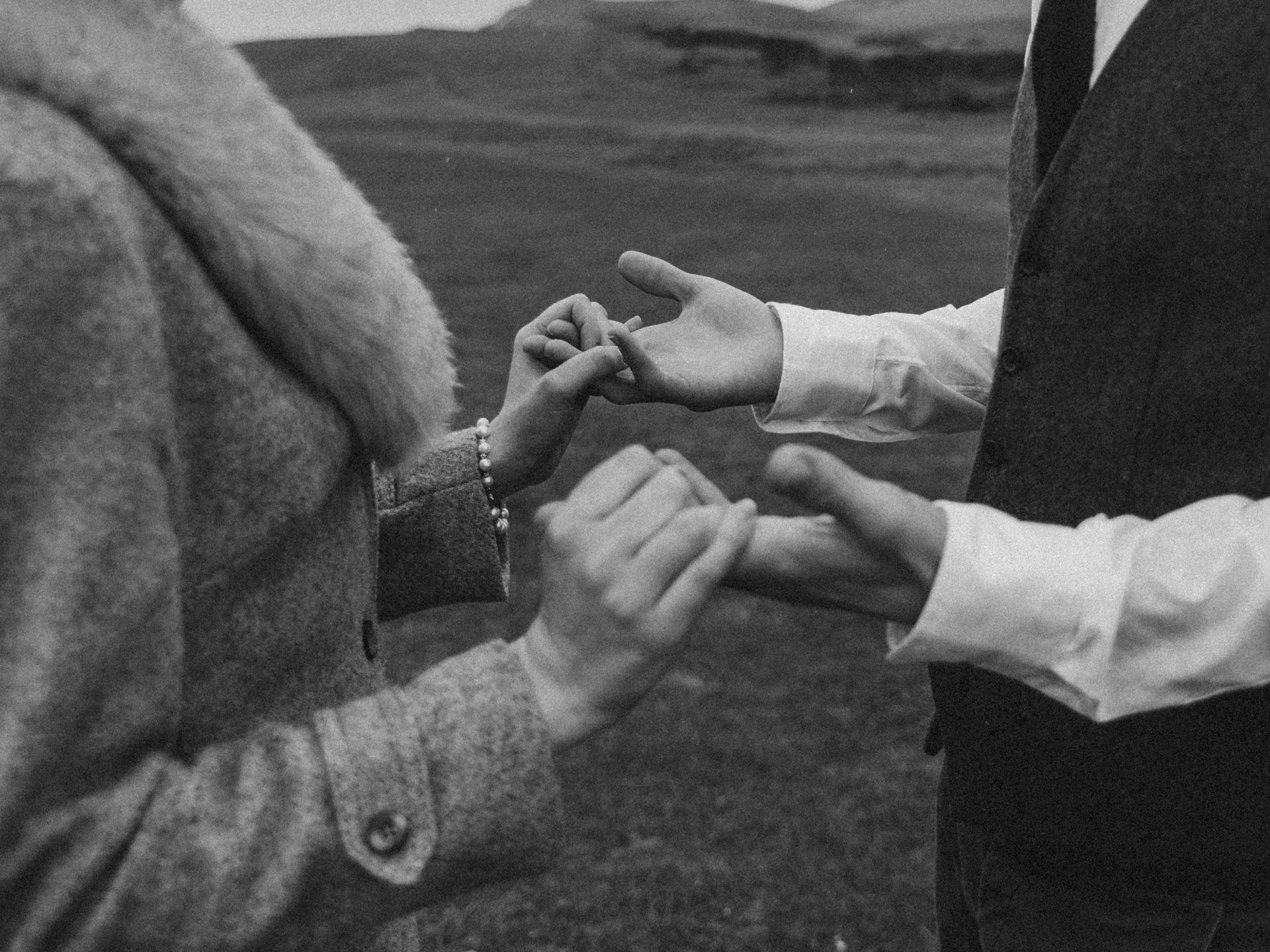Making the best out of a bad situation
Alice Edge • June 19, 2020
Genesis 21:8-21

I sat with this story for a while this week, and really spent time pondering how to preach on it, because there’s so much about the story I find just really awful. But the more I thought about it, the less I noticed the events themselves, and more began to notice Ishmael. So today, that’s who we’re going to concentrate on.
The story of Ishmael is mostly taught as a side story when we talk about the struggles of Abraham and Sarah to conceive a child. They were running out of time (and I say that a bit tongue in cheek as they were 100 and 90 years old) and needed to produce an heir for Abraham’s estate. God had promised Abraham and Sarah a child in their old age, but as the time passed they became anxious and took it upon themselves to make this happen. And this is how Ishmael came to be. Sarah gave Abraham permission to have a child with one of her servants, Hagar, as a “good enough” solution to their problem.
Now, this all seemed like a great plan until Sarah fell pregnant herself, and Isaac was born. Ishmael became a no-longer-needed part of the family, and was replaced in the line by Abraham with Isaac. As Ishmael and Isaac grew up, we read that Sarah becomes unhappy, almost bitter and resentful, towards Hagar and Ishmael, and demands that her son should not have to share the inheritance, but instead had to receive it all. The good idea she had had a few years prior had lost all the novelty, and started eating away at her because of the love she felt for her own son and a desire to see him become the best he could be.
So, for whatever reason, Abraham, heartbreakingly, relents to Sarah’s wishes and sends Hagar and Ishmael away out of their camp, essentially leaving them in the desert to die. Now admittedly, I’m not a parent, but I’m really not sure I could ever do this. I can’t imagine the struggle it would have been for Abraham to make that decision, but that’s where he landed.
Hagar and Ishmael walk through the desert, have a near-death experience from dehydration, and, after finding water, live out in the wilderness for the rest of their days. Ishmael learns archery, and I’m guessing this is the skill he used to find food and create a home for himself and his family. His wife finds him a wife from Egypt, which is where she was from before she became a slave, and they almost seem to live happily ever after in a sense.
But I have to be real with this – I really admire Ishmael in this story. This poor kid was thrown out of the family, rejected by his dad, cut off from everything he had known, almost died, and ended up living in the desert with his mum who had not a penny to her name. He has a lot of decision made for him that were out of his control. A lot of people with influence spoke into his life and set him up for failure before he could even understand what was going on. And yet what we see is Ishmael making the best life for himself that he could. He had a mother that believed in him and had his back, but even more than that, we see a resilience and determination to not give up in the face of adversity.
I think this story really highlights the impacts of our choices on others, but also the impacts of others’ choices on us. I wonder how many times in our lives people have made decisions on our behalf. Admittedly, these could be positive, life-giving decisions that have worked out well, like our parents deciding to feed us or picking a good school for us to go to, or taking us to the doctor when we’re sick, or even what neighbourhood is best for us to live in when we move house.
But there are a lot of decisions made around us every day from the moment we’re born (and sometimes even before then like we see with Ishmael’s family) that impact us, and essentially set us up for failure, or at least have really negative consequences on our lives. People might make decisions to be abusive in a variety of ways or cut us out because they don’t like the decisions we’re making or spend money in ways that are unhelpful for the household. There might be alcohol or drug dependency, mental illness that they refuse treatment for, family divisions that remain unresolved, or another child becoming the favourite at birth or as they grow up because they have a different temperament or learning style or are this or that or another thing. I’m sure this list is only the beginning of lots and lots of decisions.
These decisions impact us. Whether we are aware of it or not, they inform how we live, how we respond to others, and how we think about ourselves. I can’t imagine the struggle that Ishmael went through to try to find some sort of belonging and community after his experience from his dad. But what we also see is that no matter how our life begins, or what decisions are made on our behalf, they don’t have to dictate the rest of our life. We might have to spend our lives making the best out of rubbish situations, and it might feel a lot of the time like we are living in the wilderness or in the desert when we see others thriving in beautiful, grassy areas. But that doesn’t mean that’s all we can achieve.
I think the saving grace for Ishmael was that he had someone who believed in him and who wanted the best for him. And for each of us here, we have those people all around us, even when we can’t see it. We have people in our faith community, in our church, that just want to see each one of us thrive. We have people that believe in us when we can’t or don’t believe in ourselves. What we might lack from those that “should” be providing it, we gain from our church family.
You are loved and seen and cared about. You have a place to belong, even if you’ve never had that before. You have a place to figure out how to create a better life for yourself, even if that is in the wilderness, with people around you who want to journey that with you. Like Ishmael, we have people who make decisions for us that might not do us any favours. But also like Ishmael, we have these chances to make the best out of rubbish circumstances.
Sermons For The Moment

This is an interesting Psalm – another psalm of ascent. We spoke about these Psalms of Ascent a few weeks ago. They were songs the Jewish people sang as they made their way to Jerusalem to go to the temple, through the forest, along the tracks, camping by the roads. And I believe songs like this kept them focussed and kept their spirits up. I can imagine days of walking together, tiring, boring, hot and dusty. And singing some of these Psalms keep them focussed on the faithfulness of God. Much better then eye spy for the kids. Journeys are not all their cracked up to be even if the destination is worth it. As you know, when I was growing up we always holidayed at Bawley Point past Ulladulla, and in those days it was about a 4 hour drive from Sydney. We always left later than we meant to…and the last 20 mins was on a dirt road. One year when I was probably about 4 years old it was dark by the time we got to the dirt road, and half way along the dirt road, was a dodgy wooden bridge over a river. I think part of the bridge had been damaged and we had to wait a bit in the pitch black darkness before we could proceed. Dad was out with a torch ensuring the bridge was safe to drive on and mum and us 4 kids were sitting in the darkness – no street lights, no moonlight. Of course, you might be able to guess what I said to mum in that car, with fearful crying…you’ve probably heard it from kids before. I said ‘I want to go home’. Mum said to me, ‘we can’t go home Robyn, we’re almost there’. In truth, after the bridge we had the last 10 minutes of a 4 hours journey left. We safely crossed the bridge and we were OK. But I remember it. I remember the feeling of being scarred in the darkness. I remember not liking this journey at all. Even though I always loved the destination. Well this psalm celebrates the end of the journey and the arrival at the destination. Psalm 126:1-3, “When the Lord brought back his exiles to Jerusalem, it was like a dream! We were filled with laughter, and we sang for joy. And the other nations said, “What amazing things the Lord has done for them.” Yes, the Lord has done amazing things for us! What joy!” Before we can understand the laughter and joy of the Israelites, we have to understand their journey. This Psalm looks back to when they arrived back in Jerusalem after 70 long years in Babylon. The captives had experienced great sorrow and mourning in exile. We read these heartbreaking words in Psalm 137: “Beside the rivers of Babylon, we sat and wept as we thought of Jerusalem. We put away our harps, hanging them on the branches of poplar trees. For our captors demanded a song from us. Our tormentors insisted on a joyful hymn: “Sing us one of those songs of Jerusalem!” But how can we sing the songs of the Lord while in a pagan land?” (Psalm 137:1-4). Their tormentors demanded they sing joyfully, but they were like – that’s impossible, it doesn’t come from our heart. So they just sat by the waters of Babylon and wept. But now by an amazing work of God they were suddenly back in Jerusalem. And so their joy came from their heart. The wait was over, the journey was complete. “We were filled with laughter, and we sang for joy.” The journey is the hard bit though isn’t it? I was reminded of this, this week. An Officer couple I was speaking to, said that their teenager said some very hurtful things to them. Stuff like, ‘you make my life worse’. As they spoke to me, I did very little but listen and pray with them. They do have other supports in their life as well, already seeing a psychologist. But what I was thinking in my head as they were speaking was ‘oh the teenage years, I’d forgotten them’. Though we have 2 wonderful young adults in P and K, they were times when it was more than tense. K wears her heart on her sleeve, and to this day apologises for some of the things she said to me. And P, you wouldn’t know what he was thinking, and then all of a sudden all his thoughts and feelings for the last 3 years would come out like molten lava everywhere. A few days later I checked in to see how the couple and their teenager were going. I mentioned in passing about teenage years and very briefly about our experiences. I didn’t want to make it all about me. But I said teenage years can be painful and those years can really hurt everyone in the family. Teenager included. They know that we have a good relationship with P and K and they said to me, you know, this is helpful. It gives us hope. I was like, yep, this too shall pass. Because when you’re in the midst of the journey of pain and sorrow, you sometimes wonder if there’s light at the end of the tunnel. If you’ll laugh again or experience joy again. You begin to wonder, “Is this all that God has for me? Will I ever be happy again?” And here’s the promise in Psalm 126:4-6, “Restore our fortunes, Lord, as streams renew the desert. Those who plant in tears will harvest with shouts of joy. They weep as they go to plant their seed, but they sing as they return with the harvest.” When you are going through a time of deep sorrow, Psalm 126 is strong medicine for your soul. It carries a powerful message of hope. It tells you that times of trouble and sorrow do not last. It tells you that God will turn your sorrow to joy and your tears to laughter. If you are going through a challenging time right now, I pray that this psalm will speak to your heart this morning. Let me tell you right up front, whatever you’re going through, it will get better. God will change your tears to joy. This week I found something I wrote about 10 years ago. I had written it on a piece of paper and there was a whole reflection about my life. At the time we had my mum living with us, she had dementia, and mostly I remember the good times and the fun times with her. I was also the Corps Officer at Glebe and Bob was the manager at William Booth House. After a page of writing I had written something like this “I’m often anxious, I’m usually stressed, I have eczema on my eyelids and ulcers in my mouth. I always feel pressed.” I went out to Bob in the lounge room and I’m like, ‘oh my goodness, eczema on my eyelids and ulcers in my mouth’, often anxious, usually stressed. The thing is, my life feels a long way from that now, and I’d forgotten what that part of my journey felt like. I’m sure when I was there I couldn’t look ahead and see a time of joy…but the truth is that “Those who plant in tears will harvest with shouts of joy. They weep as they go to plant their seed, but they sing as they return with the harvest.” This too shall pass. ‘Yes, the Lord has done amazing things for us!’ says verse 3. God is faithful – he does the healing, the restoring, he brings the streams in the desert that renews and brings fruitfulness. I don’t need to tell you – it takes time. Today, I’m praying for a work of healing in your life, a gradual restoration of joy, of laughter. Like me as a kid, sometimes we don’t like parts of this journey at all. Even though we know our destination is good. And ultimately, we have a destination like no other and that’s the promise of God. A home in heaven made possible through Jesus. May God bless you this week as you look to Him, listen to Him, find your hope in Him and find courage and healing in your journey.







